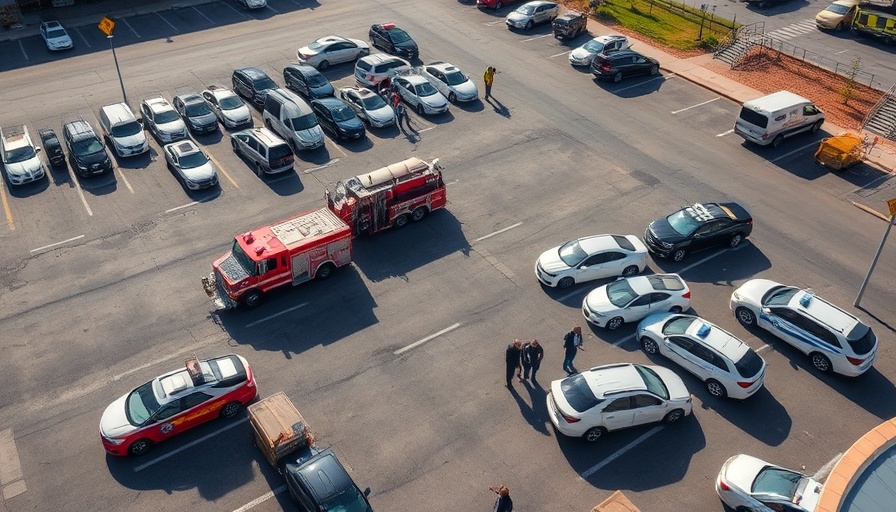
Confrontation in the Line of Duty: Analyzing an Incident in Phoenix
In a recent incident captured on video, a suspect verbally berates a Phoenix police officer before abruptly launching an attack. This confrontation is not only a startling example of the challenges faced by law enforcement but also a profound reflection on the evolving dynamics between police officers and the communities they serve.
Understanding Officer Safety: The Implications
As law enforcement agencies grapple with rising tensions in police-community relations, incidents like this one bring to forefront critical discussions surrounding officer safety and community trust. When officers face hostility, it undermines their ability to perform effectively and can lead to significant repercussions not only for the officers involved but also for the wider fabric of public safety.
The Role of Body Cameras in Enhancing Police Transparency
Body cameras have emerged as a crucial tool in law enforcement, intended to provide accountability and transparency. In the case of the Phoenix officer, the presence of body camera footage allows for a thorough examination of the encounter, fostering an environment for public trust by shedding light on the officer’s actions during high-stress situations. By providing detailed insights into confrontations, body cameras can significantly alter perceptions and narratives surrounding police interactions.
Community Engagement: Building Trust and Preventing Violence
Community trust-building becomes paramount in the context of encounters characterized by aggression and hostility. The incident serves as a call to action for law enforcement to enhance their community policing efforts. Establishing strong relationships with community members can foster an environment that discourages violent confrontations. Incorporating community feedback into training and operational strategies can lead to more effective interactions and improved outcomes for all parties involved.
Training and Preparation: Essential Tactics for Officers
The training programs that officers undergo have direct implications on their effectiveness and safety during confrontations. As seen in Phoenix, proactive crisis intervention and de-escalation techniques are integral components of successful policing strategies. By equipping officers with these crucial skills, law enforcement agencies can mitigate risks during potentially explosive encounters while fostering a safer community.
Pushing for Innovative Police Reform
This episode raises questions about the need for comprehensive police reform and the integration of new tactics and technologies in law enforcement. Optimizing emergency response strategies through enhanced training and innovative technology can help officers act with confidence and clarity, ultimately reducing hostility in the field. Initiatives focused on mental health support, both for officers and the community, could also aid in addressing the underlying issues that lead to aggressive confrontations.
As society demands changes within law enforcement agencies, incidents such as this reinforce the importance of scrutinizing use of force policies, enhancing officer wellness programs, and prioritizing community engagement efforts. The path to effective policing lies in embracing these reforms while ensuring the safety and wellbeing of both officers and community members.
Call to Action: Engaging with Law Enforcement Policies
In light of this incident, it is imperative for government policymakers and law enforcement leaders to engage in meaningful discussions surrounding public safety policies. By prioritizing transparency, community relationships, and robust training programs, we can pave the way for a new era of policing that emphasizes protection, understanding, and collaboration. Let’s advocate for sustained reforms that can help bridge the gap in community trust and enhance the safety of all, and ensure that the voice of the community is heard in shaping law enforcement policies.
 Add Row
Add Row  Add
Add 

 Add Element
Add Element 


Write A Comment